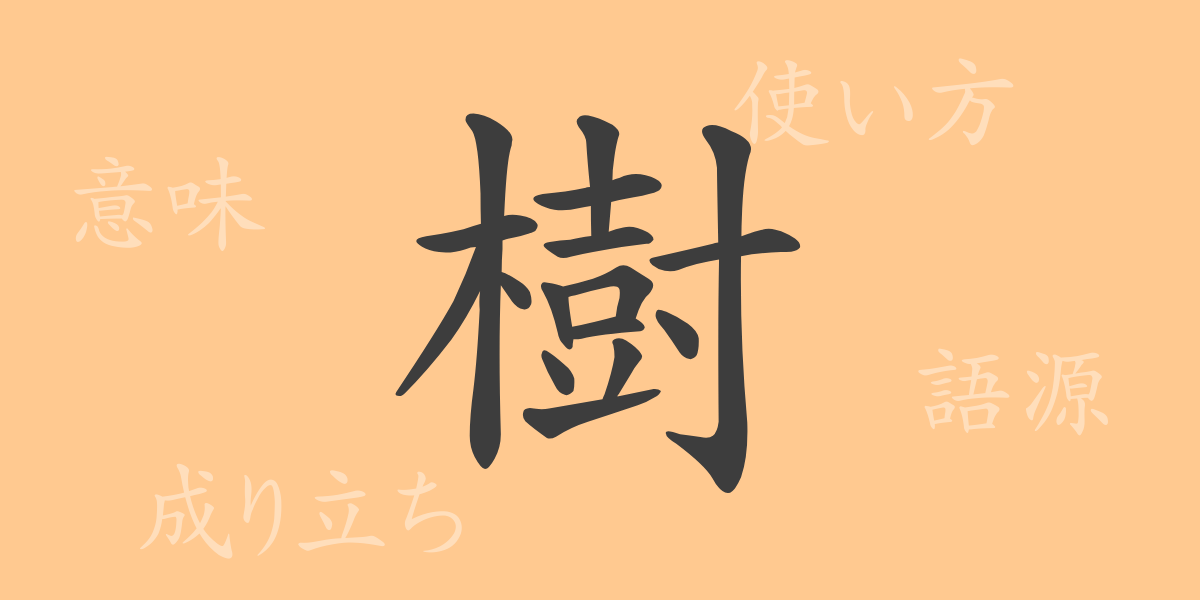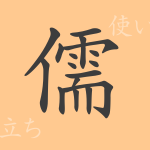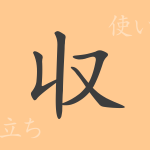In Japanese culture and language, kanji characters hold value far beyond their function as mere letters. Each kanji carries a unique history, meaning, and beauty, deeply rooted in the daily lives of the Japanese people. In this article, we focus on the commonly used kanji “樹(じゅ),” exploring its etymology, modern usage, and even idiomatic expressions and proverbs that feature this character, revealing the rich world embodied in this single kanji.
Origin of 樹(じゅ) (Etymology)
The kanji “樹(じゅ)” is composed of “木(き)” meaning “tree” and “寸(すん)” meaning “hand.” The “寸(すん)” part indicates actions performed by the hand, and when combined with “木(き),” it conveys the act of planting or nurturing a tree. In ancient China, planting trees was a significant cultural activity, and this kanji symbolizes the importance of carefully nurturing trees.
Meaning and Usage of 樹(じゅ)
While “樹(じゅ)” primarily means “to plant” or “to grow trees,” its meaning extends to more abstract concepts such as “to establish” or “to build.” For example, “樹立(じゅりつ)” can refer to the physical act of erecting something as well as the establishment of systems or traditions. Additionally, the term “樹木(じゅもく)” not only refers to trees but also expresses respect for the natural environment and ecosystems.
Readings, Stroke Count, and Radical of 樹(じゅ)
The kanji “樹(じゅ)” has various readings and attributes:
- Readings: The on’yomi (音読み) is “ジュ,” and the kun’yomi (訓読み) is “き.”
- Stroke count: “樹(じゅ)” consists of 16 strokes.
- Radical: The radical is 木部(きへん), related to trees.
Idioms, Phrases, and Proverbs Using 樹(じゅ)
Japanese features a wealth of idioms, phrases, and proverbs that include “樹(じゅ).” For instance, “樹海(じゅかい)” literally refers to a sea of trees, indicating a dense forest, but metaphorically, it can describe vast, confusing areas where one might easily get lost. “樹立(じゅりつ)” means to establish a goal or principle, and “樹脂(じゅし)” refers to resin, a substance derived from tree sap that also includes synthetic variants. A well-known proverb, “樹(き)を見て森(もり)を見ず,” warns against focusing on the details while missing the bigger picture.
Conclusion on 樹(じゅ)
The kanji “樹(じゅ)” has held various meanings and usages from its origins to the present day, playing a crucial role in the Japanese language. It symbolizes the value placed on nurturing nature and the establishment of human society’s systems and cultures. In idioms and proverbs, “樹(じゅ)” conveys wisdom and lessons, reflecting the deep respect and affection Japanese people have for their language. Through kanji like “樹(じゅ),” we can appreciate the rich culture and history behind the words.

























